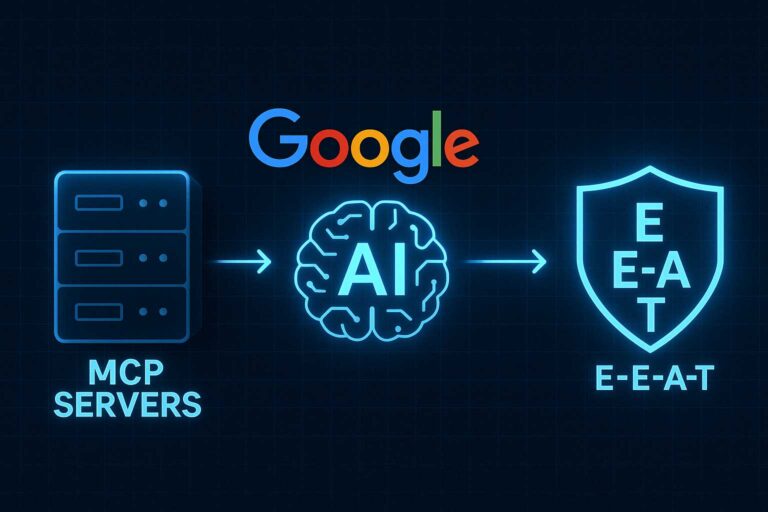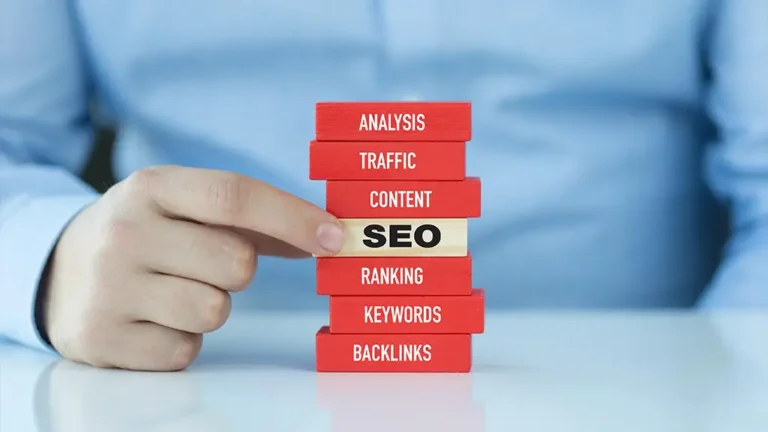How AI Is Transforming SEO Strategies for Better Rankings
Artificial intelligence (AI) is revolutionizing nearly every industry, and search engine optimization (SEO) is no exception. As search engines like Google integrate AI to better understand user behavior and intent, businesses must adapt their SEO strategies to stay competitive. AI has brought a new level of sophistication to how content is discovered, ranked, and displayed, making traditional SEO techniques less effective on their own.
The use of AI in SEO is no longer just about identifying the right keywords or building backlinks. Instead, it’s about creating highly relevant, personalized, and contextually accurate content that aligns with what users are searching for. AI-powered tools have made it possible to automate many aspects of SEO, from keyword research to content optimization, allowing businesses to stay ahead of their competition.
For businesses looking to thrive in this evolving landscape, understanding how to leverage AI in their SEO strategy is essential. Whether you’re optimizing for local search with the help of a local SEO agency or crafting a global content strategy, embracing AI-driven techniques can lead to improved rankings, better engagement, and more meaningful traffic.
AI-Powered Search Algorithms
One of the most significant ways AI is transforming SEO is through its integration into search algorithms. Google’s RankBrain, for example, was one of the first AI-powered updates designed to better understand search intent. RankBrain uses machine learning to analyze user behavior and adjust search results accordingly, ensuring users see the most relevant content. Similarly, Google’s BERT (Bidirectional Encoder Representations from Transformers) helps the search engine process natural language queries more effectively by understanding context and nuance.
These AI-driven algorithms have shifted the focus from exact-match keywords to contextual and semantic search. For example, if a user searches “best vegan cafes near me,” the AI considers location, user preferences, and even reviews to deliver results that align with their intent. This means businesses must create content that answers questions and provides value beyond simply including keywords.
Understanding how AI algorithms function allows businesses to optimize their content to meet these requirements. Writing for human readers while addressing AI’s ability to analyze context is key. For instance, a local bakery might focus on producing high-quality content about their products and services while incorporating natural language phrases like “freshly baked bread in [city].” This approach helps their content rank higher in both traditional and AI-driven searches.
The Role of AI in Content Optimization
AI has also transformed how businesses optimize their content for search engines. Tools like Jasper, ChatGPT, and Surfer SEO use AI to analyze data and provide actionable recommendations for improving on-page SEO. These tools can suggest keyword variations, ideal content length, and even readability adjustments to align with best practices.
One of the most impactful applications of AI in content optimization is the ability to align content with user intent. AI-powered tools analyze search queries to identify what users are looking for and recommend ways to structure content that provides answers or solutions. For example, if users are searching for “how to choose the right hiking boots,” a retail brand can create a blog post that addresses common concerns, includes a product comparison, and offers tips for selecting the best fit.
Additionally, AI can help identify content gaps by analyzing competitor sites and revealing topics or keywords they may be ranking for that your site is not addressing. This allows businesses to create new, targeted content that fills those gaps and captures additional traffic.
Another advantage of AI in content optimization is the ability to localize content effectively. For businesses targeting local markets, AI tools can identify region-specific trends and keywords, ensuring your content resonates with the audience in a particular area. By working with a specialized agency, such as a local SEO agency, businesses can leverage AI to craft localized strategies that boost visibility and rankings within their target markets.
These advancements in AI-powered content optimization have made it easier than ever for businesses to produce relevant, high-performing content that appeals to both search engines and users.
Predictive Analytics and SEO
One of the most transformative applications of AI in SEO is its ability to leverage predictive analytics. By analyzing vast amounts of data, AI-powered tools can predict future search trends, user behaviors, and content performance, enabling businesses to stay ahead of the competition. Predictive analytics allows companies to make informed decisions about what content to create, when to publish it, and how to optimize it for maximum visibility.
For instance, AI can identify seasonal trends or spikes in demand for certain keywords, helping businesses prepare their strategies well in advance. A retail brand could use predictive analytics to anticipate an increase in searches for “back-to-school supplies” months before the season begins, ensuring they rank for these terms when demand peaks.
AI tools also analyze user behavior on your site, such as how visitors interact with content or which pages lead to the highest conversions. These insights can inform content updates, helping you create more effective pages. For example, if a blog post about home gardening is driving significant traffic but has a high bounce rate, predictive analytics might suggest adding actionable tips, internal links, or multimedia elements to keep users engaged.
The ability to predict user intent and align your strategy accordingly gives businesses a competitive edge. By staying proactive and using AI-driven insights, companies can create content that not only ranks higher but also meets the needs of their audience more effectively.
AI and Voice Search Optimization
As voice-activated devices like Amazon Alexa, Google Assistant, and Apple Siri become household staples, optimizing for voice search has become a critical aspect of modern SEO. Unlike traditional text queries, voice searches are conversational and often framed as questions. For example, a user might type “best pizza near me” but say, “Where can I find the best pizza nearby?” Businesses must adapt their SEO strategies to capture this growing segment of search traffic.
AI plays a crucial role in understanding and processing natural language queries, making voice search optimization more relevant than ever. Tools powered by AI can help identify long-tail keywords and phrases that align with how users speak. For instance, instead of focusing solely on short keywords like “digital marketing,” a business might optimize for phrases like “What is the best digital marketing strategy for small businesses?”
Creating content that directly answers common questions is a proven strategy for voice search optimization. FAQs, conversational blog posts, and how-to guides work particularly well. For example, a health and wellness brand might include an FAQ section addressing questions like “What are the benefits of yoga?” or “How many calories does yoga burn?” By providing concise, actionable answers, businesses increase their chances of being featured in voice search results.
Local SEO is especially important for voice search, as many queries involve location-specific intent, such as “What’s the nearest coffee shop?” Ensuring your Google Business Profile is up-to-date with accurate hours, location, and contact information helps voice assistants retrieve and display your business for local queries.
By leveraging AI to optimize for conversational language and local intent, businesses can position themselves at the forefront of voice search trends, capturing more traffic and improving overall visibility.
Personalization Through AI
Personalization has become a cornerstone of effective digital marketing, and AI is making it more powerful than ever. Search engines are increasingly tailoring results based on individual user preferences, behavior, and search history. This shift means businesses need to focus on creating content that resonates with diverse audience segments to stay relevant in personalized search results.
AI enables businesses to segment their audiences and deliver tailored content that meets specific needs. For instance, an e-commerce brand might use AI tools to analyze customer purchase history and recommend products in a blog post or email campaign. Similarly, a local restaurant could create separate landing pages for dine-in customers and those searching for takeout or delivery options, ensuring each audience receives content tailored to their preferences.
Dynamic content, powered by AI, allows websites to adapt in real time to user behavior. For example, a travel agency might feature vacation packages for tropical destinations if the user has previously searched for beach getaways. This level of personalization not only enhances the user experience but also increases engagement and conversion rates.
AI can also help businesses identify and prioritize underserved audience segments. For instance, a clothing retailer might discover that customers searching for sustainable fashion are a growing demographic. Using this insight, they could create targeted content such as eco-friendly fashion guides or highlight their sustainable practices, capturing the attention of this emerging audience.
By embracing AI-driven personalization, businesses can create meaningful connections with their audience, improve user satisfaction, and secure higher rankings in search results.
AI in Technical SEO
Technical SEO is the foundation of any successful search optimization strategy, and AI is revolutionizing how businesses approach this critical area. By automating complex tasks and offering actionable insights, AI-powered tools are streamlining the process of identifying and resolving technical issues that could negatively impact search rankings.
Site audits, for example, are faster and more comprehensive with AI. Tools like DeepCrawl, SEMrush, and Screaming Frog now use machine learning algorithms to detect issues such as broken links, duplicate content, and crawl errors. These tools not only identify problems but also prioritize them based on their potential impact on SEO performance. For instance, an e-commerce site experiencing slow page load times on its checkout page would receive a high-priority alert, allowing the business to address the issue promptly.
AI is also instrumental in improving site speed and mobile responsiveness. With Core Web Vitals remaining a key ranking factor in 2025, optimizing metrics like Largest Contentful Paint (LCP) and First Input Delay (FID) is essential. AI-driven solutions analyze page load times, suggest compression techniques for images, and recommend script optimizations to enhance performance.
Additionally, AI supports international SEO by managing hreflang tags and ensuring content is correctly localized for different regions. A global company with multiple language versions of its website can use AI tools to ensure search engines deliver the right content to users in each geographic area.
By leveraging AI in technical SEO, businesses can maintain a strong foundation that supports better rankings, enhances user experience, and keeps their websites in peak condition.
Visual and Video Search Optimization
The rise of AI-powered visual and video search technologies is transforming how users find information online. Tools like Google Lens allow users to search using images rather than text, while advancements in video recognition enable search engines to index and rank video content more effectively. Businesses that invest in visual and video SEO are well-positioned to capture this growing segment of search traffic.
Optimizing visual content begins with ensuring images are high-quality and relevant to the content they support. AI tools can analyze the contextual relevance of images and recommend alt text, file names, and captions that align with user search intent. For example, a real estate website featuring property photos can use descriptive alt text like “spacious two-bedroom apartment with modern kitchen” to improve discoverability.
For video content, platforms like YouTube remain critical. AI-powered algorithms prioritize videos that are well-optimized, with clear titles, detailed descriptions, and accurate tags. Closed captions and transcripts further enhance accessibility and help search engines understand the video’s content. A fitness brand creating a “10-minute beginner yoga routine” video, for instance, should include a transcript and use keywords like “beginner yoga tips” in the description to improve visibility.
Emerging technologies like AR (augmented reality) and VR (virtual reality) are also shaping the future of search. Businesses that integrate AR-enabled features, such as virtual try-ons for fashion brands or interactive product demonstrations for tech companies, can stand out in visual and video search results.
By prioritizing visual and video SEO, businesses can engage users with compelling multimedia content while increasing their visibility in AI-driven search platforms.
AI-Powered Competitor Analysis
Understanding your competitors’ strategies has always been a cornerstone of effective SEO, and AI has made competitor analysis more insightful and actionable than ever. By analyzing competitors’ websites, keywords, backlinks, and content performance, AI tools provide businesses with a clear view of what’s working in their industry and where they can gain an edge.
AI-driven tools like SEMrush, Ahrefs, and Moz allow businesses to track competitor rankings, identify high-performing content, and uncover gaps in their own strategies. For example, a SaaS company might discover that a competitor ranks highly for “best project management software” due to an in-depth comparison guide. Armed with this insight, the company can create a more comprehensive guide that includes additional features or user reviews.
Backlink analysis is another area where AI excels. Tools can identify the quality and sources of competitors’ backlinks, highlighting opportunities to replicate or improve upon these link-building strategies. For instance, a health supplement brand might notice a competitor earning backlinks from fitness blogs and can then target similar partnerships.
AI can also predict trends by analyzing competitors’ historical performance and identifying patterns. A fashion retailer might use AI to see which styles or collections drive traffic to competitor sites, allowing them to adjust their marketing focus accordingly.
By leveraging AI-powered competitor analysis, businesses can refine their strategies, identify new opportunities, and stay ahead in the competitive SEO landscape.
The Future of AI in SEO
As AI continues to evolve, its role in shaping SEO strategies will only expand. Businesses that embrace AI-driven tools and practices today will be better prepared for the challenges and opportunities of tomorrow.
One of the most promising advancements is the increasing role of machine learning in personalizing search results. AI will become even better at understanding user preferences and delivering highly tailored content. For businesses, this means focusing on dynamic, segmented content that aligns with individual user needs.
Voice search will continue to grow, driven by improvements in natural language processing and smart devices. Businesses must create conversational, question-driven content to capture voice search traffic and adapt to the rise of spoken queries.
AI’s ability to analyze and predict search trends will become more sophisticated, allowing businesses to anticipate user behavior with greater accuracy. This predictive power will enable marketers to stay ahead of shifts in consumer preferences and search habits.
Finally, as visual and video search technologies advance, businesses will need to invest more heavily in high-quality multimedia content. Interactive experiences, such as AR and VR, will play an increasingly important role in engaging users and improving search visibility.
The future of SEO lies in embracing AI as an integral part of strategy development. Businesses that adapt to these changes and leverage AI’s full potential will be well-positioned to achieve lasting success in search rankings.

















